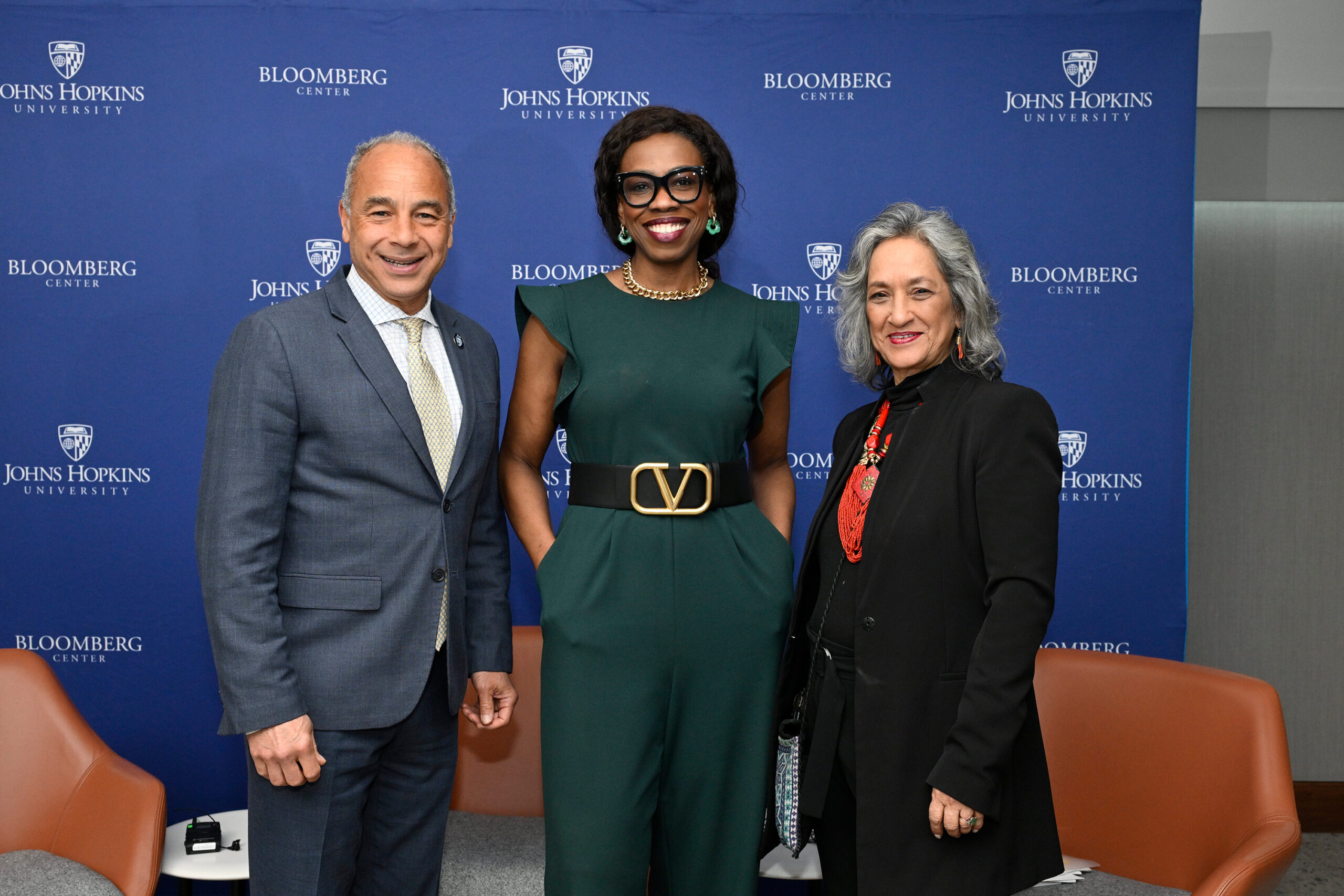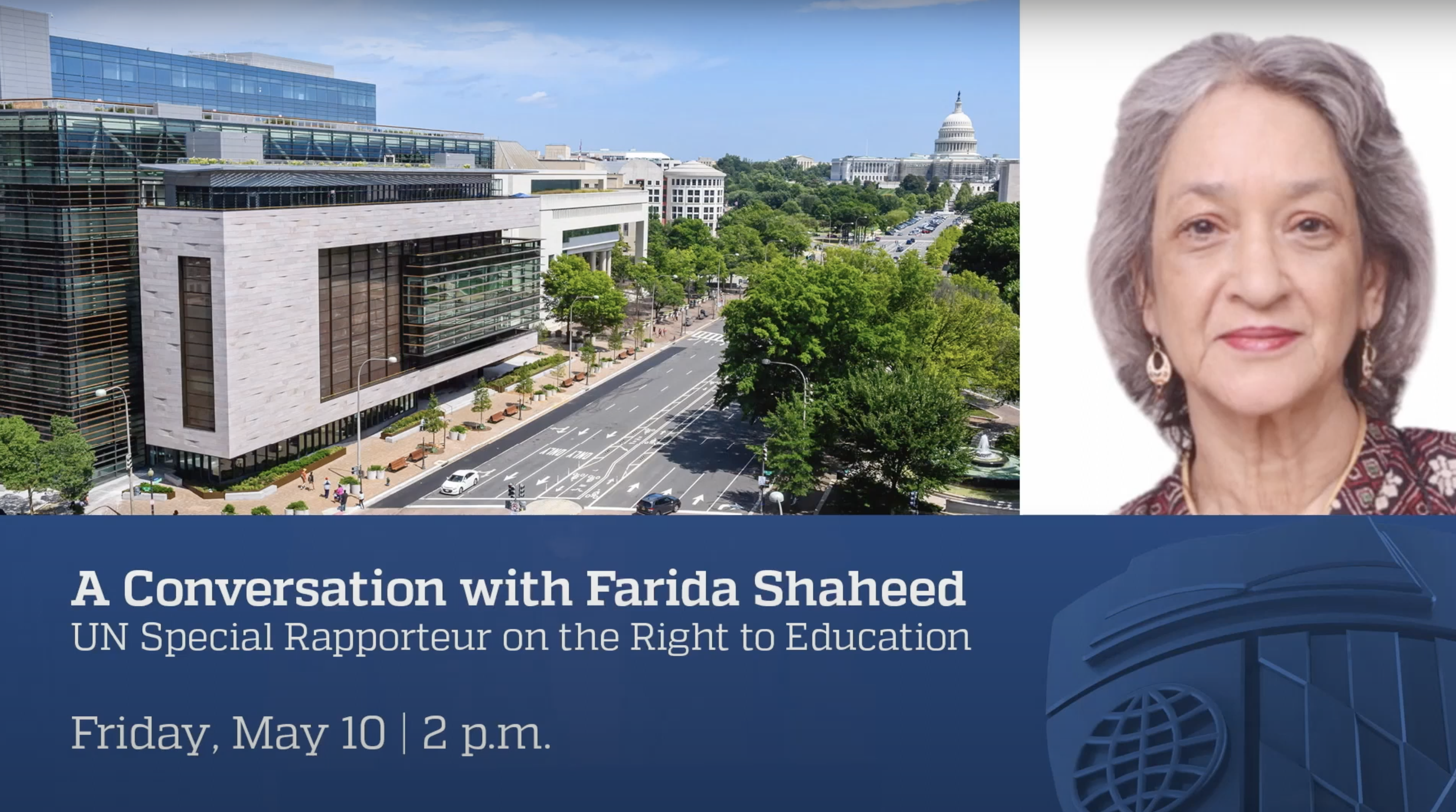Affirming the right to education
Reinforcing education as a human right globally is more important than ever, according to the UN’s Special Rapporteur

KEY TAKEAWAYS
- Underpinning the right to high-quality education are the Four A’s: availability, accessibility, affordability, and adaptability, says Farida Shaheed, the United Nations special rapporteur on the right to education.
- Inequalities were exacerbated by the pandemic, which affected 1.5 billion students, she added.
- Alongside the U.N., civil society, academia, and other experts play a role in articulating solutions and standards.
In a livestream discussion, Farida Shaheed, the United Nations special rapporteur on the right to education, spoke at the Johns Hopkins University Bloomberg Center on May 10, making the case that access to high-quality education is a human right that not only greatly benefits individuals, but also uplifts entire communities.
Shaheed noted a growing understanding around the world of the need for quality education that is not just accessible and affordable, but also adaptable to local needs and accountable to community stakeholders. She acknowledged that there is a measure of skepticism on how much impact the U.N. can have in achieving these goals. “But if you didn’t have the U.N., you’d have to invent it,” she said. “Imperfect as it is, it’s the only forum in which the whole world can come together to solve these problems.”
Shaheed said there are “four A’s” underpin the basic right to education:
- Availability: There must be sufficient infrastructure and schools where students can learn.
- Accessibility: Facilities must be accessible, both in terms of distance and for students of all physical abilities.
- Affordability: Education needs to be affordable as well, not only in terms of tuition, but also the ancillary costs including uniforms, transportation, and supplies.
- Adaptability: Not all children have similar learning pathways, and educational systems must respond to students’ particular needs, whether they are visually or otherwise impaired or need support with language and access.
A fifth “A”—accountability—is also critical, Shaheed noted. Her comments came during a recent conversation with Johns Hopkins School of Education Dean Christopher Morphew and Chiedo Nwankwor, vice dean for education and academic affairs at the Johns Hopkins School of Advanced International Studies (SAIS). Ashley Rogers Berner, director of Johns Hopkins Institute for Education Policy, provided the introductory remarks for the event.

Watch the full event replay
Reinforcing these collective rights is ever more important, Shaheed said. Since 2019, she noted, rights around the world have been challenged by social and economic crises, extreme poverty, and the COVID-19 pandemic, which exacerbated inequalities around the world and affected 1.5 billion students. The net result of these co-occurring crises has been a poor implementation of human rights—both a political and moral failing, Shaheed said.
Still, Shaheed said she is encouraged by what she sees as wider acceptance of the principles of human rights. “So many more people are using them as a standard to change what’s happening on the ground,” she said. “Words by themselves are really not meaningful. We need to translate them into concrete actions so everybody can enjoy the full compendium of human rights and the basis of equality.
“Education is the right to lifelong learning,” she added. “It’s the right to know, the right to do, the right to be, and the right to live together in peace with your fellow humans. That is the purpose of education.”
Shaheed, a Pakistani citizen, took office as the U.N. special rapporteur on the right to education in August 2022. She is a sociologist and the executive director of Pakistan’s leading gender justice organization, Shirkat Gah – Women’s Resource Centre.
Widely published, and the recipient of several international and national human rights awards, Shaheed’s research and work as a development consultant/practitioner have been dedicated to promoting people’s rights, in particular marginalized groups such as women, persons of non-binary identities, those living with disabilities, religious and ethnic minorities, and the economically marginalized. She is also a former member of Pakistan’s National Commission on the Status of Women and served as the U.N. special rapporteur in the field of cultural rights from 2009 to 2015.